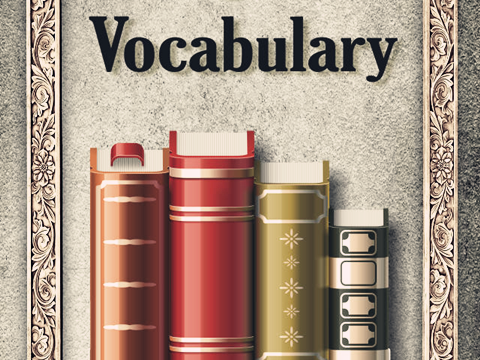
We’re all familiar with contractions. Plenty are signalled by an apostrophe and others don’t hide their origins with any notable ingenuity – such as I’m, you’re, they’ll etc. But some everyday words have dispensed with markers of their shortenings, to the extent that you may well not have realized that they ever started as anything else.
我们对缩写并不陌生,很多以撇号表明缩略,有些则无新意可言,直接可看出其来源,如I’m, you’re, they’ll ("我是、你是、他们是")等。但有些日常词汇已不用缩略标记,你很有可能都意识不到这些词最初以别样的形式存在。
don and doff
穿戴
Saying that you’ll don your coat or doff your hat might be a little old-fashioned, but you’ll probably still recognize them as meaning ‘put on’ and ‘take off’. What you might not have realized is that the words were originally contractions of essentially those definitions: do on and do off.
说“你要don your coat或是doff your hat”不免略显老套,但你应该仍能辨识出其“穿上”和“脱下”的意思。或许你还没反应过来,这词本质上是do on(“穿”)和do off(“脱”)这两大定义的缩写。
goodbye
再见
Everybody knows what goodbye means, but its origins may not have been detected: it’s a contraction of God be with you, with good substituted on the pattern of phrases such as good morning. Similar derivations exist across Europe for terms such as adios and adieu.
每个人都知道“goodbye” 的意思,但这个词的来源或许还无人探究。它是“God be with you(上帝与你同在)”的缩约形式,套用“good morning”这样的短语形式,换上good。欧洲俯首皆是诸如此类的词源,如adios和adieu这样的字眼。
willy-nilly
愿意也好,不愿也罢
Now used as an adverb meaning ‘without direction or planning’ (‘politicians expanded spending programmes willy-nilly’, for instance), the word is a contraction of the phrase will I, nill I (or will he, nill he etc.). This means ‘be I willing, be I unwilling’, ‘whether one likes it or not’ is still a current use of the term. An example of the original form can be found in Hamlet: ‘Here lies the water; good: here stands the man; good; if the man go to this water, and drown himself, it is, will he, nill he, he goes.’
现用作副词,意为“无方向、无规划”(例如,"政治家们漫无目的地扩大支出方案"。)这个词是短句will I, nill I 或(will he, nill he 等)的缩写,意为“我愿意也好,不愿也罢”、“管它喜不喜欢”,这层意思现在仍常用。这词最初的形式可以在《哈姆雷特》中找到范例:“Here lies the water; good: here stands the man; good; if the man go to this water, and drown himself, it is, will he, nill he, he goes.(此处有水,好;此处有人,好;若此人到水边溺亡,事已至此,不论是否出于自愿。)”
daisy
雏菊
This very literally common or garden flower opens in the morning and closes at night, and this – along with its sunny appearance – earned the flower its Old English name d ges ēage, ‘day’s eye’. Later, this contracted into the word daisy. If you’re feeling more formal, you can call it theBellis perennis.
这一实则再寻常不过的园林花卉早晨开放,夜晚闭合,其阳光和煦的外形为其赢得古英语(精品课)中d ges ēage, ‘day’s eye(白天的眼睛)’的名字,后来,便缩约为daisy。如要正式点,可以称之为Bellis perennis(学名,太阳菊)。
husky
哈士奇犬
While husky as an adjective (typically used to describe somebody’s voice) has uncertain origins, when husky refers to the dog, things are a little clearer. The word is from the mid-19th century and originally denoting the Inuit language or an Inuit person (then termed Eskimo, which is now considered offensive): husky is an abbreviation of obsolete Ehuskemay or Newfoundland dialect Huskemaw.
尽管husky作为形容词用法的来源不详(通常用以描述人的声音),husky用以指代狗的时候,其来源则相对清晰明了。这一词源自19世纪中期,最初指代因纽特语或因纽特人(后来被称作Eskimo,现在这么称呼已不礼貌)。husky是Ehuskemay的缩写,(该词现已不用),也有说是纽芬兰方言里Huskemaw一词的缩写。![]()